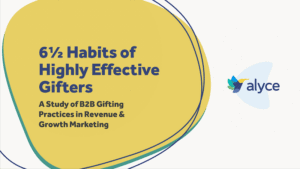
Here’s a humbling statistic: Only 9% of sales emails sent are opened.
How about another one: 58% of sales reps give up after a single attempt to connect with a prospect.
So what does that leave us with? Sales reps whose prospecting emails aren’t opened and who give up on their outreach after just one attempt.
But that’s not you, otherwise, you wouldn’t be reading this blog post.
You’re here because you want to capture the attention of your prospect and you want to do it in a way that’s personal and relevant to them, right?
Great.
There’s a secret weapon that lives in your marketing team’s archives that’ll help you create more relevant and hard-hitting outbound marketing strategy.
Buyer personas.
When your marketing team goes through the process of creating buyer personas they answer all those questions you should be addressing in your prospecting emails to make them relevant.
The challenges that buyer has in their day-to-day.
The goals those buyers work towards every day.
And how your product or service solves their challenges and helps them achieve their goals.
Crafting Your Sales Outreach With Buyer Personas
Most sales reps are only appealing to their prospect’s personas when they’re writing sales emails, if they’re trying to create a personal connection with their prospect in the emails.
And that’s a good start, don’t get me wrong.
However, in order to really make an impact, your emails should appeal to your prospects #5to9, who they are outside of work, as well as their buyer persona, or 9-to-5.
This mix of the #5to9 and the 9-to-5 keeps your sales messaging relevant and personal, two aspects of your outbound emails that are imperative that you incorporate for success. Just ask Becc Holland.
There’s a formula you can follow that helps you remember where and when to use your prospect’s #5to9 interests and when to make your email more relevant to their personal:
1-to-1
1-to-few
1-to-many.
Start your email off by appealing to your prospects #5to9. Make sure they know that the email was written specifically for them.
Then move into their buyer persona. Explain how your product or service helps people in their position solve the challenges they face on a daily basis.
And finish up with your CTA. A strong CTA that can be relevant to more than just one person and drives people to act.
Related: Outbound is Broken (and Hated): Here’s How to Fix It
Sales Outreach Examples
To put these formulas into action, here are a few examples of how they’d work for different personas:
VP of Marketing
Director of IT
VP of Finance
Haven’t Developed Personas Yet? Take a Look On The Inside
Who do you sell to? Directors of Sales? IT Managers? HR Coordinators?
Now, do you have a target persona who works for your company? One of the easiest ways to get to know your persona is to sit down with one that you have in your own company.
Run your sales email past your target persona who works at your company to see if it resonates. They understand what they and their peers want, and know their day-to-day better than anyone else. They’re living it.
If they don’t have time to sit down and talk to you, look at their calendar. Do some minor stalking and see how they structure their day. Without sitting down and talking to them, you already understand just how busy they are, what they’re working on, and who else they collaborate within the company.
Use that intel in your emails, reference the persona within your company and use that as social proof in your own emails.
Without having 100% certainty about what your prospects are working on, being able to have them relate to a member of your team internally will make a difference in how you view and reach out to your prospects.
Photo by Stephen Phillips on Unsplash









